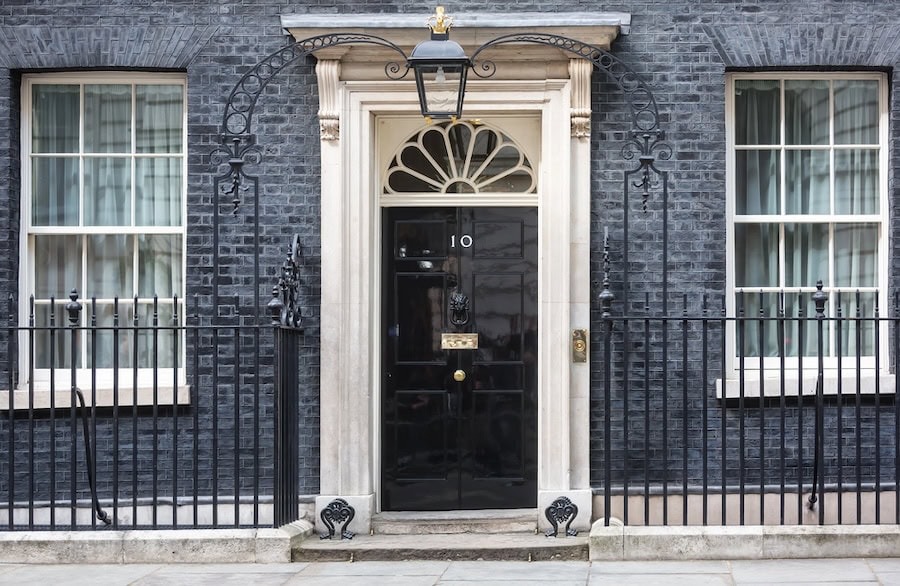What Does the UK Budget Mean for Affiliate Marketers?

The UK’s recent Budget announcement has left many self-employed affiliates and SME owners in the digital space assessing how new changes may affect their bottom line. From tax adjustments to policies impacting earnings and overall costs, there’s a lot to unpack for affiliate marketers and the advertisers who work with them.
Tax changes affecting self-employed affiliates and SME owners
One of the Budget’s significant points for self-employed individuals is the planned increase in National Insurance Contributions (NICs), which will directly affect earnings.
Currently, self-employed people contribute NICs at a lower rate than employees, but new changes could see this gap narrowing. Higher NICs may reduce take-home pay for self-employed affiliates, impacting cash flow and available resources for marketing, tech tools, or other reinvestments essential to growth.
On the income tax side, the Budget has introduced adjustments to personal allowances and thresholds. While this may seem subtle, even small changes in tax bands can affect how much self-employed individuals end up paying. For affiliates, any additional taxes on earnings mean tighter budgets, which could limit their ability to expand their affiliate reach or invest in content creation. With less disposable income, affiliates might become more selective about partnerships, focusing on those with higher commission rates or reliable conversions.
Impact on small business owners in the affiliate industry
Many small business owners in the affiliate marketing sector could feel the squeeze from increased corporation tax, which is affecting companies with profits over certain thresholds. The higher corporation tax burden may impact UK-based affiliate agencies and publishers, requiring them to adjust their growth strategies to account for these changes. This could lead to a more conservative approach, potentially reducing the funds available for scaling campaigns, hiring staff, or testing new affiliate partnerships.
VAT changes and the cost of doing business
The Budget also introduced adjustments to VAT thresholds that could impact smaller businesses and sole traders. For affiliates working within the VAT threshold, crossing it could mean higher administrative costs and prices, impacting competitiveness.
While affiliates themselves may not bear these costs directly, small businesses in related areas—such as media buying or tech services—might pass on these additional expenses. This could result in increased prices for the platforms and tools many affiliates rely on to run their campaigns effectively.
Digital infrastructure and advertising support
One positive takeaway is the Budget’s commitment to strengthening the UK’s digital infrastructure. This investment could support better online connectivity, boosting the potential for affiliates to reach wider audiences, especially in regions where connectivity has previously been an issue. Faster, more reliable internet means improved user experiences, which could increase engagement and conversions for affiliates across the board.
For advertisers and agencies, the Budget’s digital push could bring opportunities. Better online infrastructure could drive more traffic, enabling a more targeted and precise approach to advertising, ultimately leading to improved conversion rates. However, with changes in costs due to NICs and taxes, both affiliates and advertisers may need to adjust budgets to accommodate these fluctuations.
What this means for UK advertisers working with UK publishers
Advertisers may also feel the effects of these Budget changes in their relationships with UK publishers. Increased costs for small and medium businesses in the UK could lead to a shift in focus, with publishers potentially prioritising higher-commission campaigns or diversifying their advertiser portfolios.
For example, if self-employed affiliates or smaller publishing firms find it harder to cover operating costs, they may become more selective about advertisers. In turn, advertisers might need to make their offerings more attractive by providing competitive commission rates or offering exclusive deals to stand out.
These Budget changes might also lead UK publishers to prioritise advertisers from higher-value industries, such as finance, technology, and retail. This selective approach could impact advertisers in lower-margin industries, requiring them to increase incentives or optimise ad campaigns to maintain visibility.
Preparing for the changes: what affiliates and advertisers can do
To navigate the Budget changes effectively, affiliates and advertisers can take several steps:
- Reassess your tax situation: Self-employed affiliates should consult with a tax professional to understand the full impact of NICs and income tax adjustments on their earnings. Knowing where you stand financially can help you plan accordingly and budget for essential business expenses.
- Optimise campaign partnerships: Affiliates may want to focus on campaigns that offer higher commissions or consistently strong conversions. Working with brands that provide competitive rates can help maximise returns in a tighter financial climate.
- Budget for VAT: If your business is approaching the VAT threshold, it may be wise to prepare for the added costs of VAT registration and compliance. Factoring in these costs early can reduce the surprise impact on cash flow.
- Leverage digital improvements: With a stronger digital infrastructure on the horizon, affiliates can look to expand their reach by targeting regions previously hampered by connectivity issues. Higher engagement rates may mean stronger returns and a better user experience.
- Strengthen relationships with UK advertisers: Affiliates and advertisers should work collaboratively, adjusting strategies as needed. Transparent discussions about commission rates, campaign goals, and budgetary constraints can help build a more resilient partnership that thrives, even as costs rise.
By understanding the UK Budget’s impact on affiliate earnings, self-employed individuals, and SMEs can better prepare for financial changes and make informed decisions about their future strategies.
With careful planning, affiliates and advertisers alike can adapt, ensuring they continue to grow and succeed in the face of new fiscal challenges.






